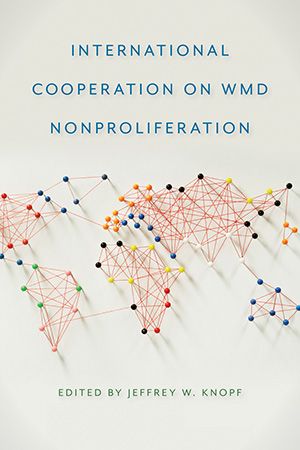November 16, 2015
 A new book has been published by Professor Jeffrey W. Knopf, chair of the M.A. program in Nonproliferation and Terrorism Studies at MIIS and a senior research associate with the Institute’s James Martin Center for Nonproliferation Studies. Dr. Knopf is the editor of International Cooperation on WMD Nonproliferation, published by the University of Georgia Press. Dr. Knopf also wrote the introductory and concluding chapters in the volume, which grew out of a research project he directed.
A new book has been published by Professor Jeffrey W. Knopf, chair of the M.A. program in Nonproliferation and Terrorism Studies at MIIS and a senior research associate with the Institute’s James Martin Center for Nonproliferation Studies. Dr. Knopf is the editor of International Cooperation on WMD Nonproliferation, published by the University of Georgia Press. Dr. Knopf also wrote the introductory and concluding chapters in the volume, which grew out of a research project he directed.
Many discussions of nonproliferation focus on foundational global treaties, such as the Treaty on the Non-proliferation of Nuclear Weapons (NPT) or Chemical Weapons Convention (CWC). Over time, however, states have added a number of other cooperative arrangements alongside these core treaties. International Cooperation on WMD Nonproliferation is the first major study to systematically examine these other cooperative arrangements for limiting proliferation. The book seeks to understand why these other cooperative measures have emerged, to identify the reasons why states choose whether or not to participate in them, and to assess their effectiveness.
The volume contains twelve case studies, ranging from regional nuclear-weapon-free zone treaties to the nuclear security summits initiated by President Obama to the Iran nuclear deal. Dr. Knopf concludes that states have been engaged in a process of “building cooperation” in three senses: the adding of new arrangements over time, an increase in the number of participants in those arrangements, and a deepening of working-level relationships as states work together to implement activities associated with different cooperative endeavors.
